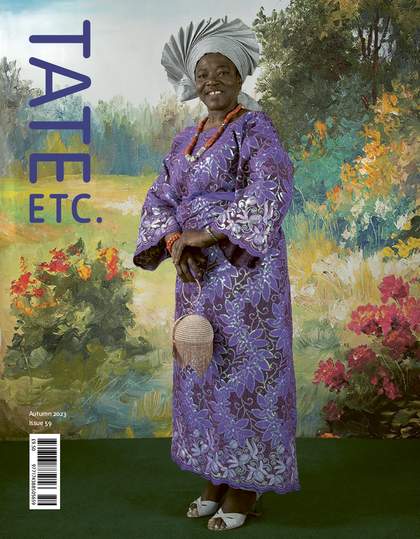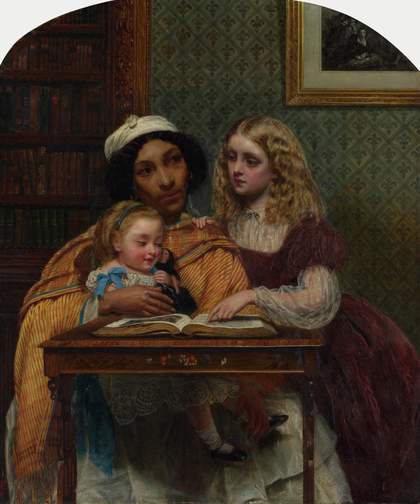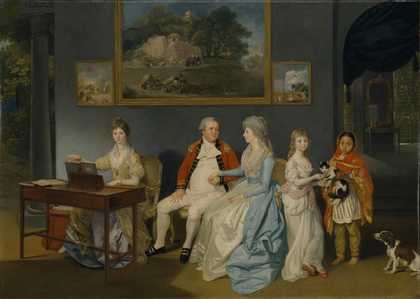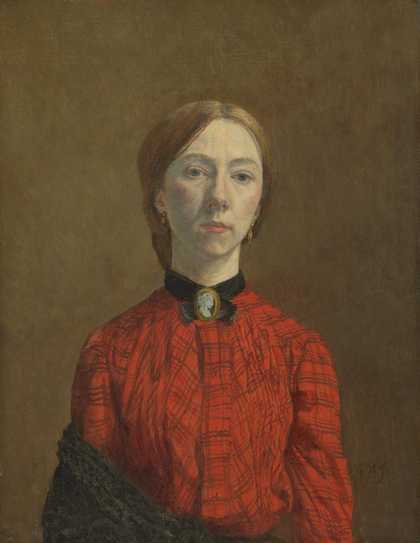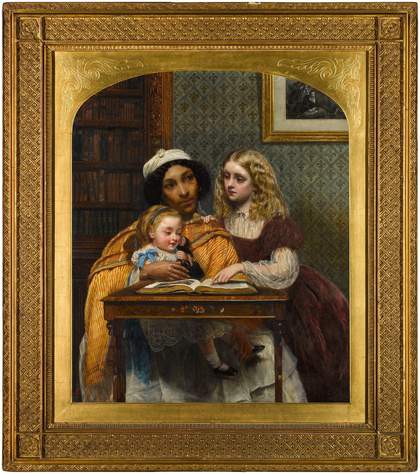
Rebecca Solomon, A Young Teacher 1861. Tate and the Museum of the Home. Purchased with funds provided by the Nicholas Themans Trust, Art Fund, the Abbott Fund and the National Lottery Heritage Fund.
An initial glance at Rebecca Solomon’s A Young Teacher 1861 may evoke discomfort in the modern viewer. At first we might see only a stereotypical relationship of servitude: here is a Black woman tasked with the patient care of the rich white children who sit beside her. The image of the oldest girl tracing her finger below a line of text in the book opened before them leads us to question the impulse behind such an inversion. Why has the painter chosen to foreground a child tutoring an adult if not to reinforce racist tropes of Black inferiority?
But upon closer examination, the painting becomes a more poignant political critique. The Black woman, modelled by Fanny Eaton (a favourite of Pre-Raphaelite painters such as Dante Gabriel Rossetti) is working for a wealthy family that is content for her to remain their social and intellectual inferior. Despite the maid’s obvious tiredness, rendered in the dark circles under her eyes, her gaze is intently fixed on that of her young tutor. There is a quiet, humble desire to learn and thereby gain access to the world of knowledge that surrounds her, symbolised by the packed shelves of leatherbound books behind her, and the print of Shakespeare hanging on the wall.
The eldest child, for her part, has not yet been socialised into the belief that education should be closed off to her maid. Solomon’s painting reveals the hypocrisy behind a home that valorises learning, but which ensures it is out of bounds for the maid, who has been given the important work of child-rearing.
Believed to be the first woman from a Jewish background in Britain to become a professional artist, in this painting Solomon challenges a status quo that would confine women like Eaton to the margins.
A Young Teacher was jointly purchased by Tate and Museum of the Home with funds provided by the Nicholas Themans Trust, Art Fund, the Abbott Fund and the National Lottery Heritage Fund in 2023. It is currently on display at Tate Britain.
Lola Okolosie is a teacher and writer based in London with an interest in race, politics, education and feminism.

